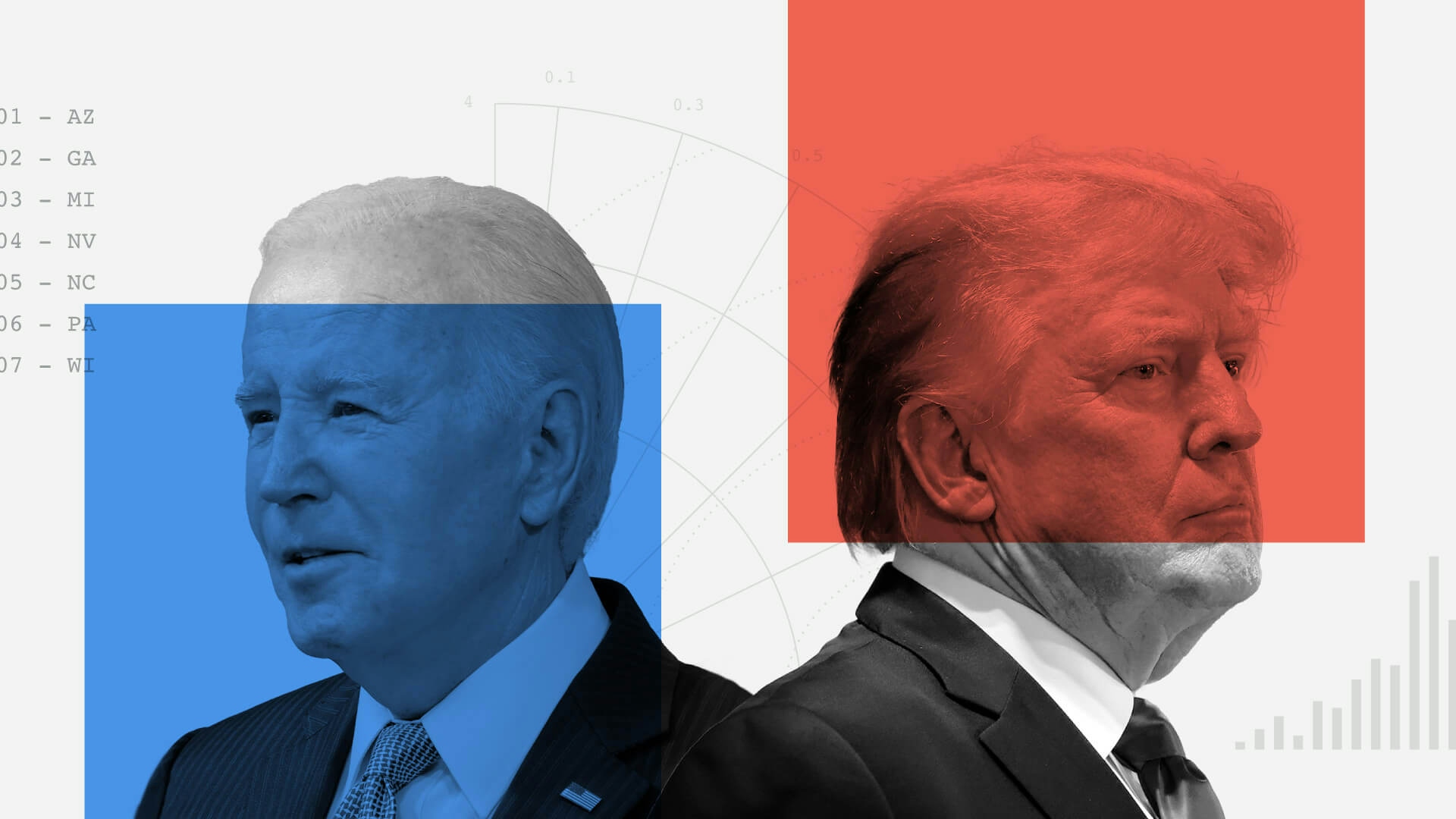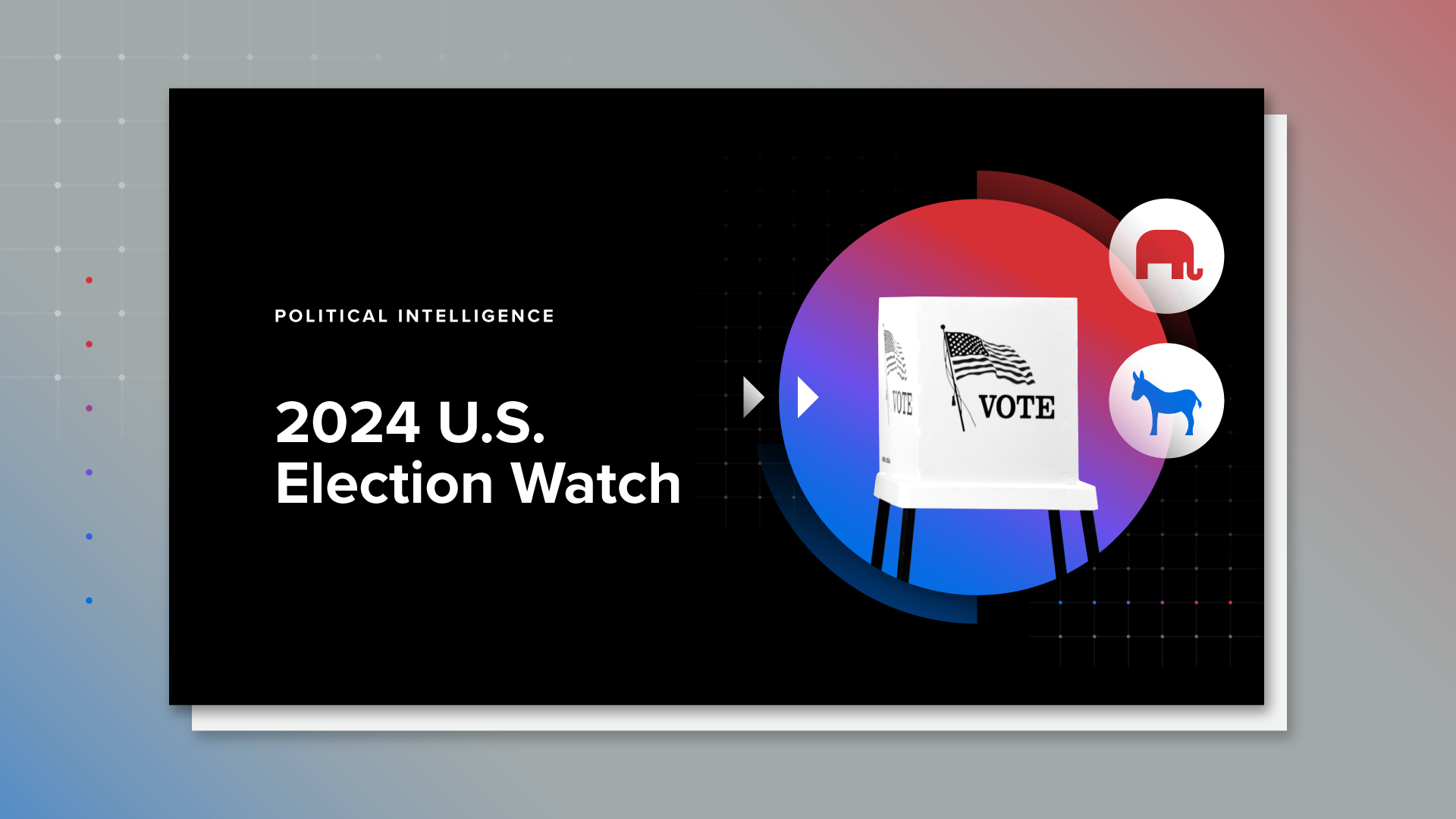Jan. 6 Is Looming Larger for Voters’ 2024 Decision
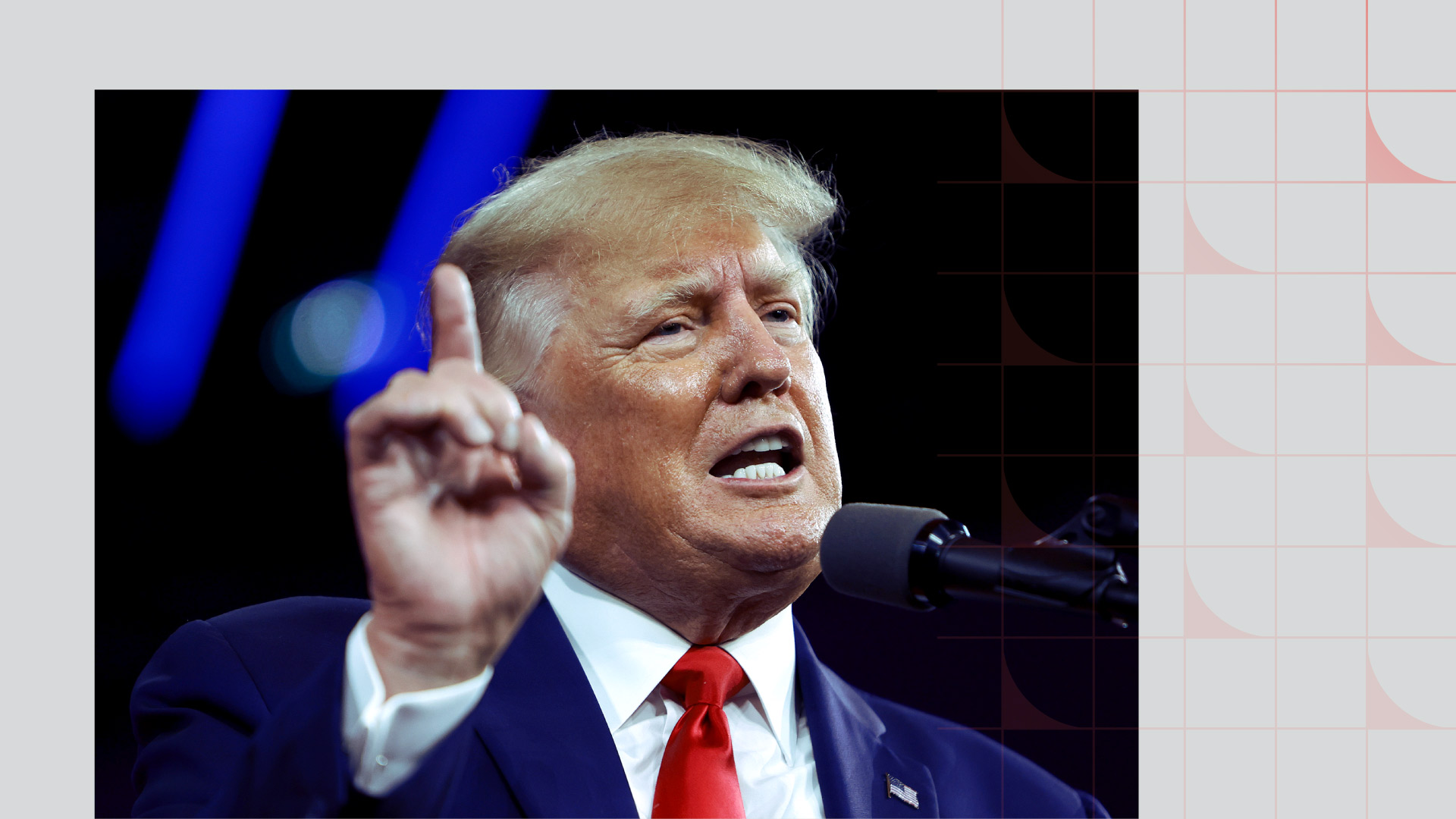
Sign up to get the latest data and analysis on how business, politics and economics intersect around the world.
Donald Trump is steamrolling his way to the Republican presidential nomination and polling as competitively as ever against President Joe Biden among the broader electorate at the national and state level. But Morning Consult trend data suggests his role in the Jan. 6 Capitol attacks three years ago remains an Achilles’ heel that could cost him dearly in November.
Jan. 6 Looks More Salient for 2024 Than 2022
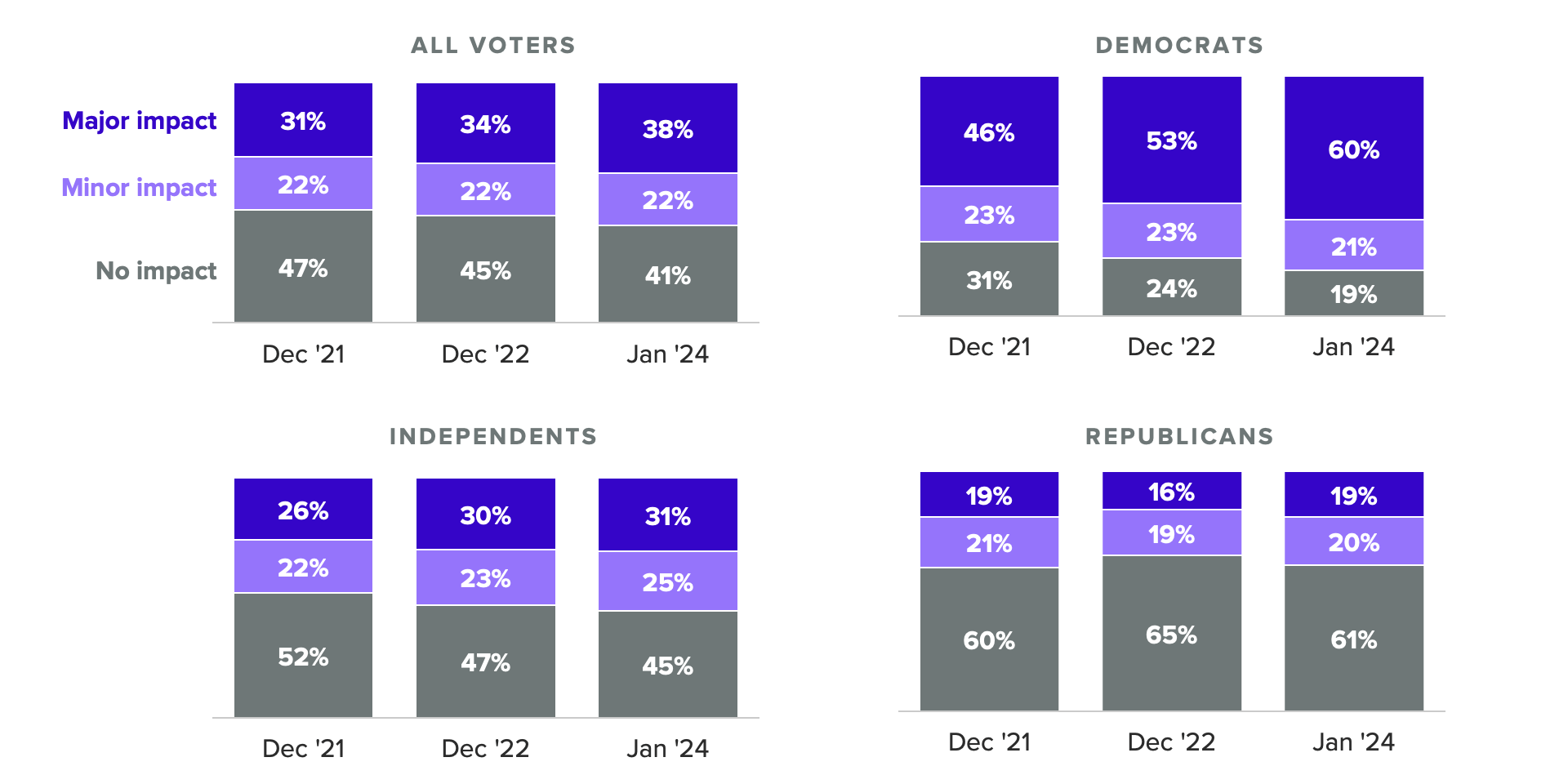
Roughly 3 in 5 (59%) voters surveyed this week said the events of Jan. 6, 2021, will have a major or minor impact on how they vote in 2024, compared with 55% who said the same in a December 2022 survey. That 59% of voters is also up from the 53% who said in December 2021 that Jan. 6 would have an impact on how they voted in the 2022 midterm elections.
Specific demographics at scale: Surveying thousands of consumers around the world every day powers our ability to examine and analyze perceptions and habits of more specific demographics at scale, like those featured here.
Why it matters: Leaders need a better understanding of their audiences when making key decisions. Our comprehensive approach to understanding audience profiles complements the “who” of demographics and the “what” of behavioral data with critical insights and analysis on the “why.”
As we saw in 2022, voters tended to penalize Republican candidates who took anti-democratic stances and backed Trump’s claim that the 2020 presidential election was stolen. The increasingly likely prospect of a presidential election in November featuring Trump himself, the original “Stop the Steal” candidate, would give voters every opportunity to view the contest as a referendum on democracy itself.
That’s because while Trump and his GOP allies in Congress have been successful in shifting blame for Jan. 6 away from themselves among Republican voters, it’s been a different story outside of the conservative base.
Most Voters Continue to Blame Trump for Jan. 6
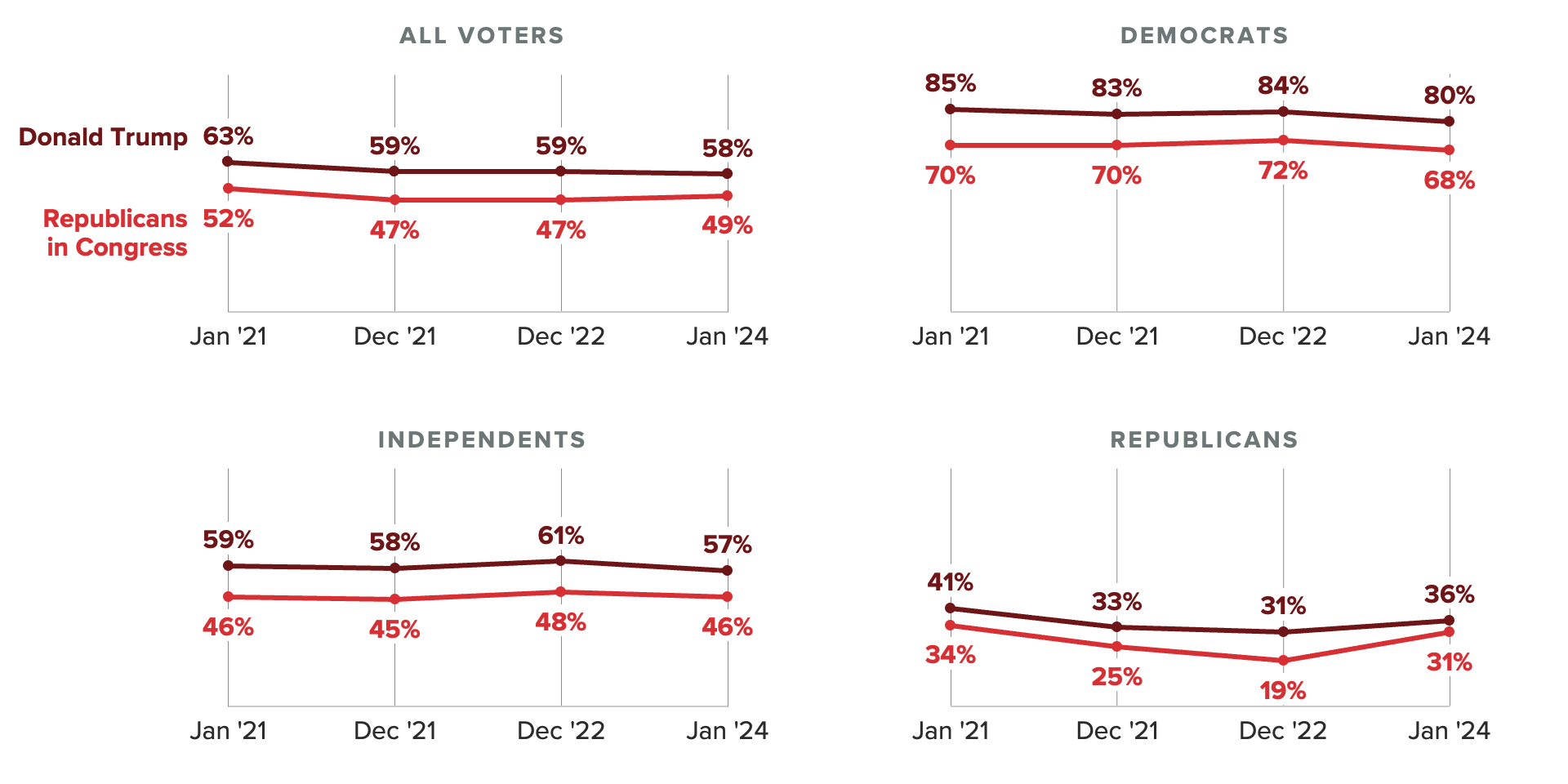
Roughly 3 in 5 of voters, including a similar share of independents, say Trump is at least “somewhat responsible” for the events that led to the 2021 siege of the Capitol. Those figures are within a few percentage points of respective highs for each group for the duration of our tracking to date.
What it means for 2024
Given these findings, it’s reasonable to ask why Trump remains competitive, with marginal leads in key battlegrounds, against Biden.
It’s important to remember that historically speaking, head-to-head general election polling this far out from the election is much less predictive than what we see in the stretch run of the campaigns, after both parties have actually nominated their candidates.
For example, just 47% of voters in a Morning Consult survey conducted early last month said it was “very likely” that Trump will win the Republican nomination. That could mean that head-to-head tracking between Biden and Trump in recent months is more reflective of a referendum on Biden than a choice between two candidates. If, as expected, Trump begins to win nominating contests, voters may well begin evaluating the question differently.
And while the Biden campaign will surely do all it can to raise the salience of Jan. 6 with its own messaging efforts — as evidenced by its decision to open 2024 with a three-year anniversary speech from Valley Forge, Pa., on Friday — there’s also a significant potential of actual legal proceedings, and even a guilty verdict, related to the fallout from the 2020 presidential election that will reinforce the institutional stakes of the contest for voters.
If, or how, those legal proceedings play out ahead of November is one of the key wild cards threatening to make 2024 the third presidential campaign in a row that can claim to be truly unprecedented.
Cameron Easley is Morning Consult’s head of political and economic analysis. He has led Morning Consult's coverage of politics and elections since 2016, and his work has appeared in The New York Times, The Wall Street Journal, The Washington Post, Politico, Axios, FiveThirtyEight and on Fox News, CNN and MSNBC. Cameron joined Morning Consult from Roll Call, where he was managing editor. He graduated from the University of North Carolina at Chapel Hill. Follow him on Twitter @cameron_easley. Interested in connecting with Cameron to discuss his analysis or for a media engagement or speaking opportunity? Email [email protected].
